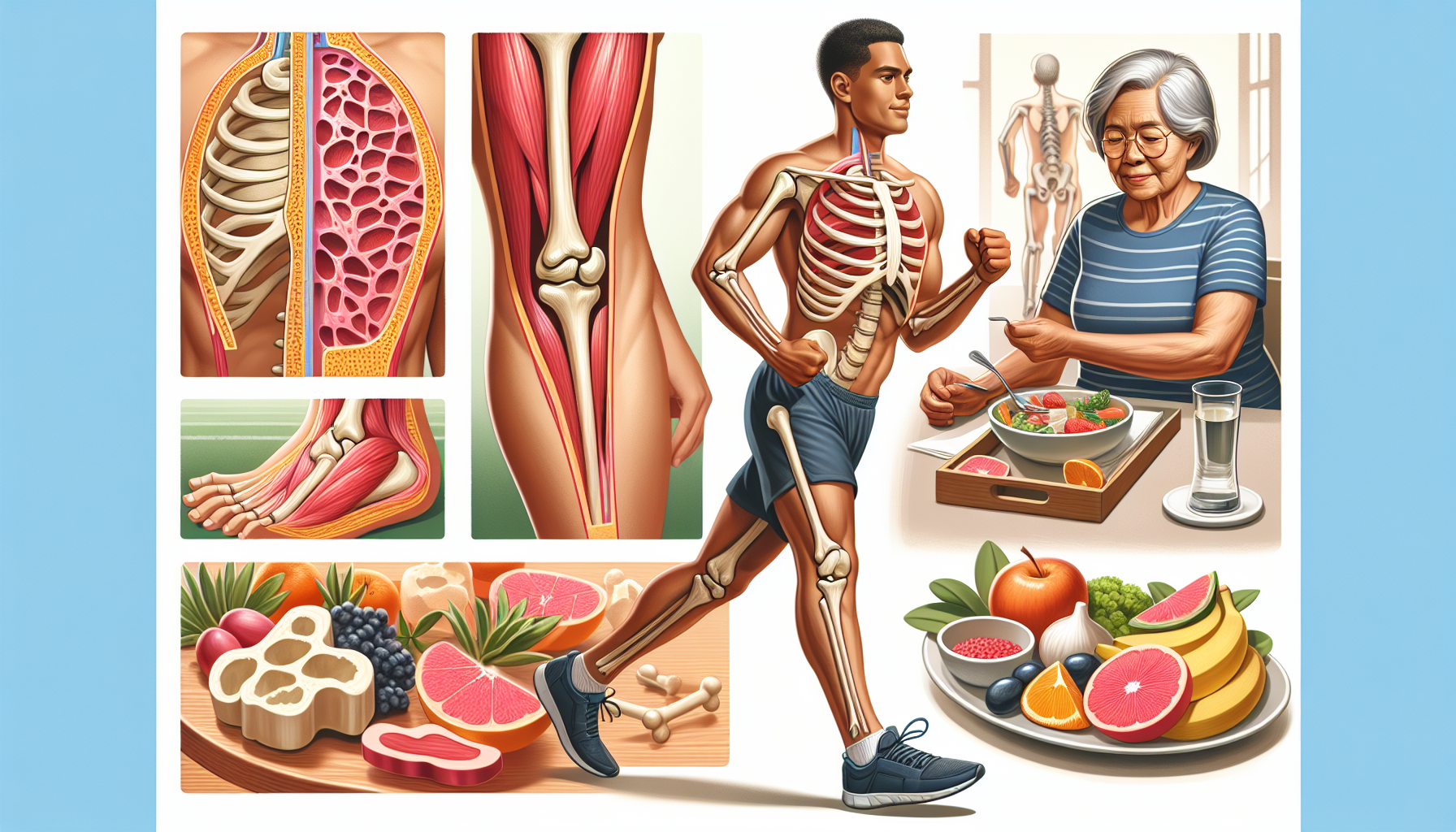Bone health is a crucial aspect of overall wellness, yet it is often overshadowed by more immediate health concerns. Our bones are the framework of our body, providing structure, protecting organs, anchoring muscles, and storing calcium. It is vital to understand how our daily choices can significantly impact our bone health throughout various stages of life.
Understanding Bone Health
Bones are not inert structures; they are dynamic and living tissue that undergo constant remodeling, with old bone being broken down and new bone being formed. This process is influenced by various factors, including nutrients, hormones, and physical activity. To maintain strong and healthy bones, it is essential to focus on a lifestyle that promotes bone health.
One of the most critical elements in maintaining bone health is adequate nutrition. A diet rich in calcium and vitamin D is fundamental, as these nutrients are the building blocks of bone. Calcium is the key mineral stored in bones, while vitamin D plays a significant role in calcium absorption and bone growth. Other nutrients such as magnesium, vitamin K, and phosphorus also contribute to bone strength.
The Role of Lifestyle Choices
Lifestyle choices have a profound impact on bone health. Physical activity, particularly weight-bearing exercises, is crucial for building strong bones. Weight-bearing exercises such as walking, running, and muscle-strengthening activities apply pressure to the bones, stimulating bone cells to grow. Strength training is also beneficial as it helps improve balance and coordination, reducing the risk of falls, which can lead to fractures.
On the flip side, certain habits can be detrimental to bone health. Smoking and excessive alcohol consumption can interfere with the balance of calcium in the body and hormone functions that are necessary for bone remodeling. It is essential to understand the effects of smoking and alcohol consumption on bone health to make informed decisions about these lifestyle choices.
Prevention and Management of Osteoporosis
Osteoporosis, a condition where bones become weak and brittle, is often a result of poor bone health management over time. Implementing prevention strategies early in life is key to reducing the risk of osteoporosis. This necessitates a multi-faceted approach that includes adequate nutrition, regular physical activity, and lifestyle modifications to avoid risk factors.
For those already managing osteoporosis or low bone density, understanding and utilizing bone density tests can help monitor the condition and effectiveness of the management strategies being employed.
Genetics and Hormones
While lifestyle choices are significant, it’s important to acknowledge the role of genetics and hormones in bone health. Genetic factors can predispose individuals to different bone health outcomes, but this does not mean that those at higher genetic risk cannot benefit from healthy lifestyle choices.
Hormones, particularly estrogen in women, play a crucial role in maintaining bone density. During menopause, decreased estrogen levels can lead to a rapid decrease in bone density. Thus, it’s essential to address how hormones affect bone density and consider hormone replacement therapy if appropriate.
Age-Related Changes and Children’s Bone Health
Bone health concerns span the lifetime, from ensuring proper childhood nutrition for peak bone mass to managing bone health with age. Children’s diets and activities set the stage for their long-term bone health, emphasizing the importance of a balanced diet and regular physical activity from an early age.
As we age, our bones naturally lose density, but this process can be mitigated by maintaining a bone-healthy lifestyle. Ensuring adequate nutrient intake and engaging in regular exercise can help preserve bone strength and reduce the risk of fractures.
Supplements and Medication
In some cases, diet and exercise may not be enough to maintain optimal bone health, and supplements or medications might be necessary. It is crucial to understand which bone health supplements work and the role of medications in managing conditions like osteoporosis.
External Resources for Further Reading
To further enhance your understanding of bone health, consider exploring these niche resources:
- International Osteoporosis Foundation: A comprehensive resource on bone health, including prevention and treatment of osteoporosis.
- National Institute of Arthritis and Musculoskeletal and Skin Diseases: Offers detailed information on bone health and diseases, research updates, and educational materials.
- Bone Health and Osteoporosis Foundation: Provides patient education resources, research news, and support for those affected by bone health issues.
Conclusion
Bone health is a lifelong commitment that requires attention to diet, physical activity, and lifestyle choices. Understanding the impact of these factors on our bones and implementing strategies for maintaining bone health can lead to better overall well-being. By taking proactive steps today, we can preserve our bone strength and reduce the risk of complications in the future.



